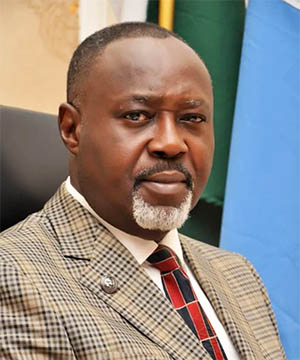
A former Managing Director of National Inland Waterways Authority (NIWA), Dr George Muoghalu, says development of inland waterways transportation will reduce high costs of goods and services in the country.
Consequently, he has urged the Federal Government to prioritise development of Nigeria’s inland waterways, saying it offers huge economic benefits, including provision of massive employment opportunities.
Muoghalu, who spoke in an interview with the News Agency of Nigeria (NAN) on Sunday in Abuja, said cost of transportation remained a key component in determining the costs of goods and services.
“I believe if containers were being transported by water instead of road, the costs of goods and services will reduce between 30 and 70 per cent.
“You don’t expect an importer or a trader to move his cargo and operate at a loss; they must add up their expenses before they arrive at a cost, hence prices of items continue to rise.
“So, if it costs N10 to move goods by land from Lagos, for example, or from Kano to Onitsha, you will certainly add that to the cost of the goods and then, it will affect the people.
“But, if we move them by water, it will drastically reduce to less than 30 per cent. You can have about 70 per cent reduction in terms of cost of transportation.
“What that implies is that rather than adding N10 to the cost of the goods, you add N3 and save N7,” Muoghalu said.
According to him, transportation is a key component in determining the cost of goods and services and must be given serious consideration if the country wants to move forward.
Muoghalu stressed the need for making NIWA more functional, saying it had enormous potential to stand on its own and contribute significantly to the nation’s economy.
He recalled that when he was the NIWA director-general, the agency put in place strategies to develop the country’s inland waterways.
“Under my watch, one of the major achievements of NIWA was the concession of Onitsha River Port as well as the building of jetties and warehouses in some communities within the country,” he said.
Muoghalu, who is a Labour Party governorship aspirant in Anambra, said what the federal government needed to do was to dredge and clear water channels.
“If there was anything I tried to do, it was to ensure the movement of cargoes from Lagos to Onitsha.
“The truth is that a good percentage, more than 60 per cent of all the cargoes that come into Nigeria end up in the South-East. That is a statement of fact.
“Most of these cargoes are moved by road from Lagos to Onitsha and these cause enormous pressure on our road infrastructure.
“So, we focused on the vision to move these cargoes through water rather by road, to save our road infrastructure.
“This also helps to open up the water channels and develop new cities as we go along.
“We made sure that the water channels are viable and put into effective use.
“I engaged the Chambers of Commerce, I engaged the ports association, I engaged the freight owners and we were on that trajectory till the end of my term.
“It’s my prayer that the administration that took over from me will continue and realise that because it is very key,’’ he said.
The former managing director said that NIWA went further to sign a Memorandum of Understanding (MoU) with Nigeria Union of Petroleum and Natural Gas Workers (NUPENG) to move their products by water instead of road.
“If you look at the pressure we have on our roads, let us assume that two million containers are going from Lagos to Onitsha and Aba.
“What that translates into is that four million trailers will be on the road, because two million trailers will bring the containers and another two million trailers will return the empty containers.
“Our roads are not designed to carry such weight. So at the end of it, we will lose money because the road infrastructure will collapse and when it collapses, we have to re-fix them.
“But, if we don’t damage them, we can use the resources to impact other aspects of our economy,’’ he said.
Muoghalu said though he would prefer people to judge his performance as managing director of NIWA, he, however, said that he did not fail as the agency’s helmsman.
“I left the place (NIWA) better than I met it,” he said, describing his experience at the agency as beautiful and challenging.
He said that he took the appointment with a mindset of implanting his legacy and to change the narrative.
“I went with a mindset to do what had not been done before.
“Fortunately, I met a team that needed just motivation. So, I motivated them; they saw my vision and then worked with me, and we tried our best to change the narrative, Muoghalu said.















